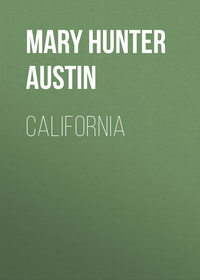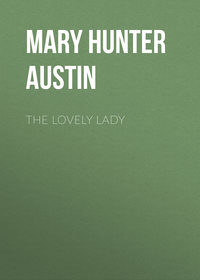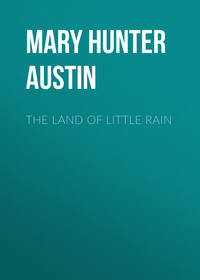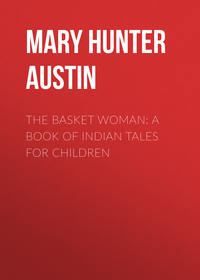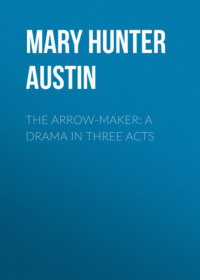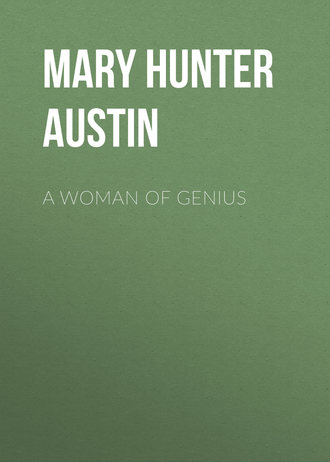 полная версия
полная версияA Woman of Genius
Willesden Lake was properly a drainage pond of four or five acres in extent, drawn like a bow about the contour of two hills; water-lilies grew at the head where a stream came in, and muskrats built at the lower end. The picnic ground was in the hollow between the two hills, by a spring, where the grass grew smooth like a lawn to the roots of oaks burning blood red from leaf to leaf. As it turned out, though we put off lunch for him for an hour, young Mr. Garrett did not come, and as the party sat about on the mossy hummocks in the quiet of repletion, I thought nothing could be so much worth while as to leave Tommy in care of Flora Haines and get away into the woods by myself. The soul of the weather had got into my soul and I felt I should discredit myself with Forester if I stayed. There was a little footpath that led down by a rill to the lake, and as I took it, there was scarcely a sound louder than the soft down-rustle of the painted leaves. There were two or three old boats, half water-logged, tied at the head of the lake, and one of these I found and paddled across to the opposite bank. I had not known there was a path there opening from the dewberry bushes that dipped along the border, but the spirit in my feet answered to its invitation. I followed it up the hill through the leaf drift that heaped whispering in the smoky wood. I spread out my arms as I went and began to move to the rhythm of chanted verse. Where the red and gold and russet banners brushed me I was touched delicately as with flame. I had on a very pretty dress that day, I remember, a thin organdy with a leaf pattern, made up over yellow sateen, and the consciousness of suitability worked happily on my mind. At the top of the hill I struck into an old wood road where it passed through a grove of young hickory, blazing yellow like a host. Here I went slowly and dropped the chanting to the measure of classic English verse; it was the only means of expression Taylorville had provided me. Scene after scene I went through happy and oblivious. I had been at it half an hour perhaps, moving forward with the natural impetus of the play, in the faint old wagon tracks, and had got as far as when I was startled by the clapping of hands, and looked up to see a young man sitting on the top of a rail fence that ran straight across the way, as though he might have stopped there to rest in the act of climbing over.
– Flowers that affrighted she let fall
From Dis's wagon! —
"I knew you would see me the next minute," he said, "and I wanted to be discovered in the act of appreciation." He sprang down from the fence and came toward me, taking off his hat. "I suppose you are from the picnic; I expected to find you somewhere about. I am Helmeth Garrett."
"They're at the spring – we waited lunch for you. I am Miss Lattimore; Olivia May," I supplemented. I was a little doubtful about that point, for at Taylorville we called one another by our first names. I was pleased with the swiftness with which he struck upon a permissible compromise.
"I owe you all sorts of apologies, Miss Olivia, but the mare I was to ride went lame and uncle couldn't spare me another, so I had an early lunch at the house and walked over." As he stood looking down at me I saw that he had a crop of unruly dark hair and what there was in his face that Pauline had found interesting. He wore a soft red tie, knotted loosely at the collar of a white flannel shirt, and for the rest of him was dressed very much as other young men. All at once a spark of irrepressible friendliness flashed up in smiles between us.
It seemed the merest chance then that I had come across the wood to meet him. In the light of what has happened since, I see that the guardian of my submerged self was doing what it could for me; but against the embattled social forces of Taylorville what could even the gods do!
"If you will take me to the others," he suggested, "I can make my excuses, and then we can talk." It was remarkable, I thought, that he should have discovered so early that we would wish to talk. We began to move in the direction of the lake.
"Were you doing a play?" he asked. I nodded.
"How long were you watching me?"
"Since you passed the plum brush yonder; it was bully! Are you going on the stage?" I explained about Professor Winter and the elocution lessons.
"They don't approve of the stage in Taylorville," I finished, touched by the vanishing trace of a realization that up to this moment the objection would have been stated personally.
"And with all your talent! Oh, I know what I'm saying. I lived in Chicago four years and saw a lot of the theatre."
He began to talk to me of the stage, probably much of it neither informed nor profitable, but I had never heard it talked of before in unembarrassed relevancy to living, and he had that trick of speech that goes with the achieving propensity, of accelerating his own energy as he talked, so that its backwater fairly floated us into the ease of intimacy. There was no doubt we were tremendously pleased with one another. I was throbbing still with the measure of verse and moved half trippingly to the rhythm of my blood.
"Do you dance too?" What went with that implied something personal and complimentary.
"Oh, no – a few steps I've picked up at school. That's another of the things we don't approve at Taylorville."
"I say, what a lot of old mossbacks there must be about here anyway. Take my uncle, now…" He went on to tell me how he had tried to induce his uncle, who could afford it, to advance the money for technical training in engineering. Uncle Garrett was of the opinion that Helmeth would do better to get a job with some good man and "pick up things … always managed to get along by rule of thumb himself," said the nephew, "and thinks all the rest of us ought to. I said, 'How would it be with a doctor, now, just to scramble up his medicine?' but you can't get through to my uncle. He thinks a man who can run a thrashing machine is an engineer."
I remember that we found it necessary to sit down on the slope of the hill toward the pond while he sketched for me his notion of what an engineer's career might be. "But you've got to have technical training … got to! Talk about rule of thumb … it's like going at it with no thumbs at all." In the midst of this we remembered that we ought to be looking for the rest of the picnickers. Once in the boat, however, there was a muskrat's nest which, as something new to him, had to be poked into, and we stopped to gather lilies, which I could not have done by myself without wetting my dress. When we came at last to the spring, we found the lunch baskets huddled under the oak and nobody about.
I think we must have been very far gone by this time in the young rapture of intimacy. The wood was smokily still, and we scuffed great heaps of the leaves together as we walked about pretending to look for the others. I remember it seemed a singular flame-touched circumstance that the leaves flew up from under our feet and fell lightly on our faces and our hair.
"I suppose we can't help finding them; the wonder is they haven't been spoiling our good talk before now."
"Oh," I protested, "if you hadn't been coming to look for them you wouldn't have met me."
"And now that we have met, we are going to keep on. I'm coming to see you. May I?"
"If you care so much…" A little spiral of wind rising fountain-wise out of the breathlessness whirled up a smother of brightening leaves; it caught my skirts and whipped them against his knees. It seemed to have blown our hands together too, though I am at a loss to know how that was.
"Care!" he said. "If I care? Oh, you beauty, you wonder!" All at once he had kissed me.
The electrical moment hung in the air, poised, took flight upward in dizzying splendour. Suddenly from within the wood came a little snigger of laughter.
CHAPTER IX
I do not know how long it took for the certainty that I had been kissed by an utter stranger in the presence of the entire picnic, to work through the singing flames in which that kiss had wrapped me. We must have walked on almost immediately in the direction of the snigger; I remember a kind of clutch of my spirit toward the mere mechanical act of walking, to hold me fast to the time and place from which there was an inward rush to escape. We walked on. They were all sitting together under a bank of hazel and the girls' laps were filled with the brown clusters. Out of my whirling dimness I heard Helmeth Garrett explaining, as I introduced him, how he had come across me in the wood, looking for them.
"And of course," suggested Charlie Gower, "in such good company you weren't in a hurry about looking for the rest of us." I remembered the asparagus bed and was glad I had slapped him.
"No," my companion looked him over very coolly, "now that I've seen some of the rest of you I'm glad I didn't hurry." Plainly it wasn't going to do to try to take it out of Helmeth Garrett.
As we began by common consent to move back to the spring, Forester drew me by the arm behind the hazel. He was divided between a brotherly disgust at my lapse, and delight to have caught the prim Olivia tripping.
"Well," he exclaimed, "you have done it!" Considering what I knew of Forester's affairs this was unbearable.
"Oh! it isn't for you to talk – "
"What I want to know is, whether I am to thrash him or not?"
"Thrash him?" I wondered.
"For getting you talked about … off there in the woods all afternoon!"
"We weren't – " I began, but suddenly I saw the white bolls of the sycamores redden with the westering sun; we must have been three hours covering what was at most a half hour's walk. "Don't be vulgar, Forester," I went on, with my chin in the air.
"Oh, well," was my brother's parting shot, "I don't know as I ought to make any objection, seeing you didn't."
That, I felt, was the weakness of my position; I not only hadn't made any objection, I hadn't felt any shame; the annoyance, the hurt of outraged maidenliness, whatever was the traditional attitude, hadn't come. Inwardly I burned with the woods afire, the red west, the white star like a torch that came out above it. On the way home Helmeth Garrett rode with us as far as the main road and was particularly attentive to Pauline and Flora Haines. I remember it came to me dimly that there was something designedly protective in this; there was more or less veiled innuendo flying about which failed to get through to me. Pauline put it quite plainly for me when she came to talk things over the day after the picnic. She was sympathetic.
"Oh, my dear, it must be dreadful for you," she cooed; "a perfect stranger, and getting you talked about that way!"
"So I am talked about?"
"My dear, what could you expect? And in plain sight of us. If you had only pushed him away, or something."
"I couldn't," I said, "I was so … astonished." In the night I had found myself explaining to Pauline how this affair of Helmeth Garrett had differed importantly from all similar instances; now I saw its shining surfaces dimmed with comment like unwiped glass.
"That's just what I said!" Pauline was pleased with herself. "I told Belle Endsleigh you weren't used to that sort of thing … you were completely overcome. But of course he wasn't really a gentleman or he wouldn't have done it." I do not know why at this moment it occurred to me that probably Henry Mills hadn't proposed to Pauline after all, but before I could frame a discreet question she was off in another direction.
"What will Tommy Bettersworth say?"
"Why, what has he got to do with it?"
"O-liv-ia! After the way you've encouraged him…"
"You mean because I went to the picnic with him? Well, what can he do about it?" Pauline gave me up with a gesture.
"Tommy is the soul of chivalry," she said, "and anybody can see he is crazy about you, simply crazy." What I really wanted was that she should go on talking about Helmeth Garrett. I wanted ground for putting to her that since all we had been sedulously taught about kissing and all "that sort of thing" – that it was horrid, cheapening, insufferable – had failed to establish itself, had in fact come as a sword, divining mystery, it couldn't be dealt with on the accepted Taylorville basis. I felt the quality of achievement in Helmeth Garrett's right to kiss me, a right which I was sure he lacked only the occasion to establish. But when the occasion came it went all awry.
It was the next Sunday morning, and all down Polk Street the frost-bitten flower borders were a little made up for by the passage between the shoals of maple leaves that lined the walks, of whole flocks of bright winged, new fall hats on their way to church. Mother and Effie were in front and two of my Sunday-school scholars had scurried up like rabbits out of the fallen leafage and tucked themselves on either side of my carefully held skirts. Suddenly there was a rattle of buggy wheels on the winter roughed road; it turned in by Niles's corner and drove directly toward us; the top was down and I made out by the quick pricking of my blood, the Garrett bays and Helmeth with his hat off, his hair tousled, and a bright soft tie swinging free of his vest. You saw heads turning all along the block in discreet censure of his unsabbatical behaviour. He recognized me almost immediately and turned the team with intention to our side of the street. He was going to speak to me … he was speaking. My mother's back stiffened, she didn't know of course. Forrie wouldn't have had the face to tell her, but how many eyes on us up and down the street did know? A Sunday-school teacher in the midst of her scholars … and he had kissed me on Thursday!
"Olivia," said my mother, "do you know that young man? Such manners … Sunday morning, too. Well, I am glad that you had the sense to ignore him;" and I did not know until that moment that I had.
It was because of my habit of living inwardly, I suppose, that it never occurred to me that the incident could have any other bearing on our relations than the secret one of confirming me in my impression of our intimacy being on a superior, excluding footing. He had come, as I was perfectly aware, to renew it at the point of breaking off, and this security quite blinded me to the effect my cold reception might have upon him. That he would fail to understand how I was hemmed and pinned in by Taylorville, hadn't occurred to me, not even when he passed us again on the way home from church, driving recklessly. His hat was on this time, determinedly to one side, and he was smoking, smoking a cigar. I thought at first he had not seen me, but he turned suddenly when he was quite past and swept me a flourish with it held between two fingers of the hand that touched his hat.
At that time in Taylorville no really nice young man smoked, at least not when he would get found out. This offensiveness in the face of the returning church-goers was too flagrant to admit even the appearance of noticing it, but that it would be noticed, taken stock of in the general summing up of our relation, I was sickeningly aware.
Tommy Bettersworth put one version of it for me comfortingly when he came in the evening to take me to church.
"I saw you turn down that Garrett fellow this morning. Served him right … that and the way you behaved Thursday … just as if you did not find him worth rowing about. A lot of girls make a fuss, and it's only to draw a fellow on; and now you're going to church with me the same as usual; that'll show 'em what I think of it." Now, I had clean forgotten that Tommy might come that evening. I was whelmed with the certainty that Helmeth Garrett had gone back to the farm after all without seeing me; and the moment Tommy came through the gate I had one of those rifts of lucidity in which I saw him whole and limited, pasted flat against the background of Taylorville without any perspective of imagination, and was taken mightily with the wish to explain to him where he stood, once for all, outside and disconnected with anything that was vital and important to me. But quite unexpectedly, before I could frame a beginning, he had presented himself to me in a new light. He was cover, something to get behind in order to exercise myself more freely in the things he couldn't understand.
Something more was bound to come out of my relation to Helmeth Garrett; the incident couldn't go on hanging in the air that way; and in the meantime here was an opportunity to put it out of public attention by going out with Tommy. It did hang in the air, however, for three days, during which I pulsed and sickened with expectancy; by Thursday it had reached a point where I knew that if Helmeth Garrett didn't come and kiss me again I shouldn't be able to bear it. It was soon after sundown that I felt him coming.
I took a great many turns in the garden, which, carrying me occasionally out of reach of the click of the gate latch, afforded me the relief of thinking that he might have arrived in the interval when I was out of hearing. His approaching tread was within me. When it was just seven my mother came out and called:
"Olivia, I promised Mrs. Endsleigh a starter of yeast; I have just remembered. Could you take it to her?"
The Endsleigh backyard was separated from ours by a vacant lot, the houses fronting on parallel streets; there was no sound at the gate and mother had the bowl in a white napkin held out to me, with a long message about where the sewing circle was to meet next Thursday.
"If any body comes," – for the life of me I couldn't have kept that back, – "you can tell them I'll be back in a minute," I cautioned her.
"Are you expecting anybody?"
"Only Tommy," I prevaricated, instantly and unaccountably. I saw my mother look at me rather oddly over the tops of the glasses she had lately assumed. On the Endsleigh's back porch I found Belle in evening dress gathering ivy berries for her hair.
"Oh," she said, to my plain appearance, "aren't you going?"
"Going where?"
"Oh, if you don't know … to Flora's." Belle was embarrassed.
"I hadn't heard of it."
"It's just a few friends," Belle wavered between sympathy and superiority. "Flora is so particular…"
"I couldn't have gone anyway," I interpolated, "I have an engagement." I had to find Mrs. Endsleigh after that and deliver my errand.
When I reached home mother was sitting placidly just outside the circle of the lamp, knitting. She only looked up as I entered and I had to drag it out of her at last.
"Has anybody been here?"
"Nobody that you would care to see."
"But who?"
"That fast-looking young man who tried to speak to you on Sunday. I'm glad you have a proper feeling about such things. Mr. Garrett's nephew, didn't you say? I told him you were engaged."
"Oh, mother!" I was out in panting haste. At the gate I ran square into Tommy Bettersworth.
"Did you see anybody?"
"Nobody. I came through by Davis's. I was coming in," he suggested, as I stood peering into the dark.
"I thought you'd be going to Flora's." A wild hope flashed in me that maybe he was going and I should be rid of him.
"Oh, I don't care much for that crowd. I told her I had an engagement with you." So he had known I was not to be invited. I resented the liberty of his defence. "Let's go down to Niles's and have some ice cream," Tommy propitiated.
"It's too cold for ice cream." I led the way back to the house. I was satisfied there was no one in the street. When we stepped into the fan of light from the lit window, Tommy saw my face.
"Oh, I say, Ollie, you mustn't take it like that. Beastly cats girls are! Flora's just jealous because she thought she was invited to the picnic for that Garrett chap, and you got him; she wants to have a chance at him herself to-night." There was a green-painted garden seat on the porch between the front windows. I sat down in it.
"It's not Flora I'm crying about … it is being so misunderstood." I was thinking that Helmeth Garrett would suppose I had stayed away from Flora's on his account; she would never dare to say she had not invited me. Tommy's arm came comfortingly along the back of the bench.
"It's just because they do understand that they are mad; they know a fellow would give his eyes to kiss you. Infernal cad! to snatch it like that; and I've never even asked you for one." His voice was very close to my ear. "I tell you, Olivia, I've thought of something. If you were to be engaged to me … you know I've always wanted … then nobody would have a right to say anything. They'd see that you just left it to me."
"Oh," I blurted, "it's not so bad as that!"
"You think about it," he urged. "I don't want to bother you, but if you need it, why here I am." It was because I was thinking of him so little that I hadn't noticed where Tommy's arm had got by this time. That unfulfilled kiss had seemed somehow to leave me unimaginably exposed, assailed. I was needing desperately then to be kissed again, to find myself revalued.
"It's awfully good of you, Tommy…"
I do not know how it was that neither of us heard Forester come up from the gate; all at once there was his foot on the step; as he came into the porch a soft sound drew him, he stared blankly on us for a moment and then laughed shortly.
"Oh! it's you this time, Bettersworth. I thought it might be that Garrett chap."
That was unkind of Forester, but there were extenuations. I found afterward that Belle had teased Flora to ask him and he had refused, thinking it unbrotherly when I was not to be invited, and he and Belle had quarrelled.
"I don't know as it matters to you" – Tommy was valiant – "whom she kisses, if I don't mind it."
"You? What have you got to do with it?"
"Well, a lot. I'm engaged to her."
BOOK II
CHAPTER I
The first notion of an obligation I had in writing this part of my story, was that if it is to be serviceable, no lingering sentiment should render it less than literal, and none of that egotism turned inside out which makes a kind sanctity of the personal experience, prevent me from offering it whole. And the next was that the only way in which it could be made to appear in its complete pitiableness, would be to write it from the point of view of Tommy Bettersworth. For after all, I have emerged – retarded, crippled in my affectional capacities, bodily the worse, but still with wings to spread and some disposition toward flying. And when I think of the dreams Tommy had, how he must have figured in them to himself, large between me and all misadventure, adored, dependable; and then how he blundered and lost himself in the mazes of unsuitability, I find bitterness augmenting in me not on my account but his. The amazing pity of it was that it might all have turned out very well if I had been what I seemed to him and to my family at the time when I let him engage himself to me to save me from immanent embarrassment.
My mother, though she took on for the occasion an appropriate solemnity, was frankly relieved to have me so well disposed. Tommy had been brought up in the church, had no bad habits, and was earning a reasonable salary with Burton Brothers, Tailors and Outfitters.
There was nobody whose business it was to tell me that I did not love Tommy enough to marry him. I have often wondered, supposing a medium of communication had been established between my mother and me, if I had told her how much more that other kiss had meant to me than Tommy's mild osculation, she would have understood or made a fight for me? I am afraid she would only have seen in it evidence of an infatuation for an undesirable young man, one who smoked and drove rakishly about town in red neckties on Sunday morning. But in fact I liked Tommy immensely. The mating instinct was awake; all our world clapped us forward to the adventure.
If you ask what the inward monitor was about on this occasion, I will say that it is always and singularly inept at human estimates. If, often in search of companionship, its eye is removed from the Mark, to fix upon the personal environment, it is still unfurnished to divine behind which plain exterior lives another like itself! I took Tommy's community of interest for granted on the evidence of his loving me, though, indeed, after all these years I am not quite clear why he, why Forester and Pauline couldn't have walked in the way with me toward the Shining Destiny. I was not conscious of any private advantage; certainly so far as our beginnings were concerned, none showed, and I should have been glad of their company … and here at the end I am walking in it alone.


